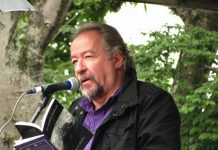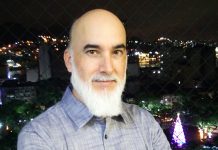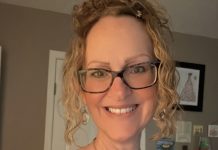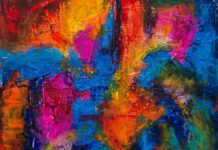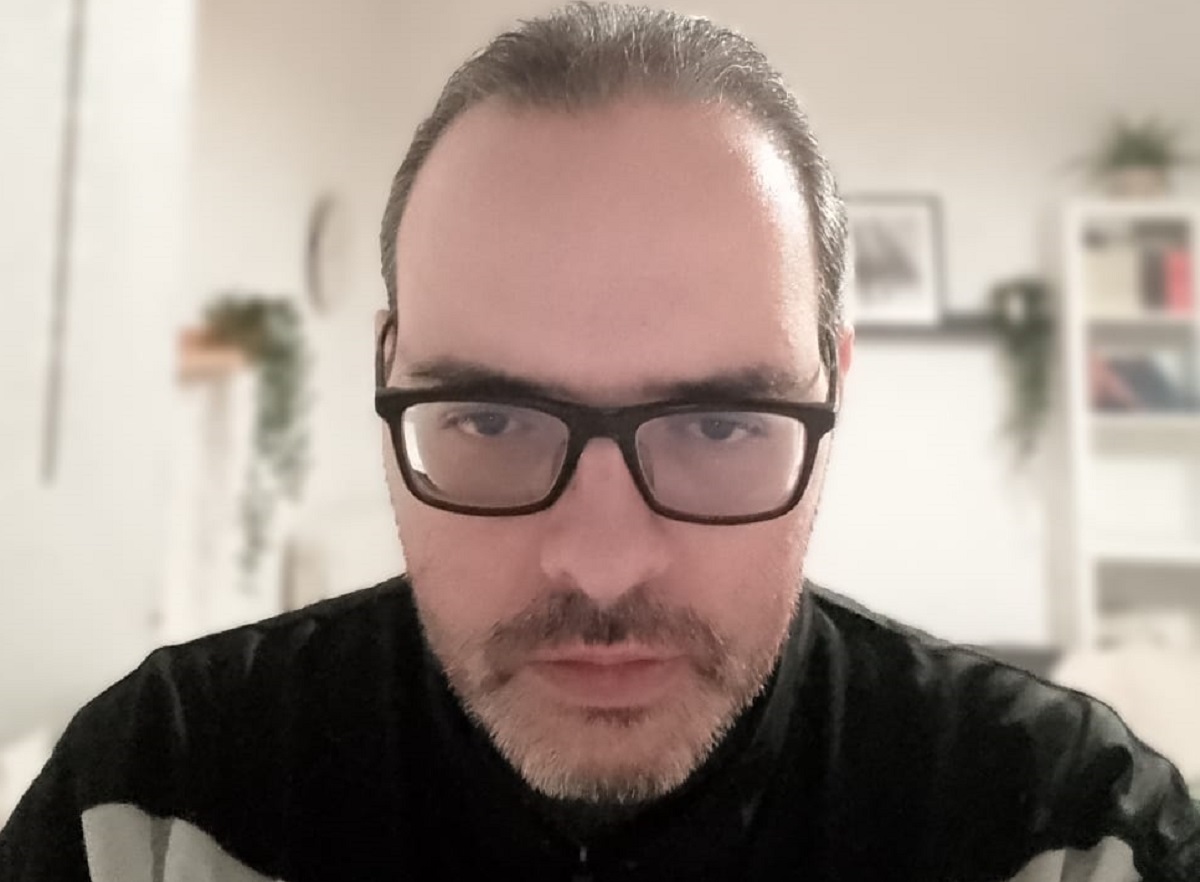Photo by: Zaki Qutteineh
By Arjun Bandyopadhyay
Expressive arts therapist Gili Haimovich [b. 1974] is an Israeli bilingual Hebrew-English poet and translator. She is the author of six books of poetry in Hebrew and two selections originally written in English, Sideways Roots (2017) and Living on a Blank Page (2008).
Her work appears or are forthcoming in World Literature Today, International Poetry Review, Poetry International, Poem Magazine, LRC – Literary Review of Canada, Drain Magazine, Blue Lyra, Mediterranean Poetry, TOK 1: Writing the New Toronto, Asymptote, The New Humanist, Room Magazine and elsewhere as well as major Israeli literary journals such as Emda and Helicon. Her work has been translated into many languages and presented in different festivals and venues around the world.
Her photography has been presented in journals and art exhibits such as the Contact Photography Festival and the Koffler Centre of the Arts in Toronto.
Below is an excerpt from a detailed interview with Gili Haimovich, in which she answers various questions about poetry and her life as a creative personality:
Gili, you’re interested in speaking about darkness. I think “darkness” is the overriding theme of your writing. Contemporary Chinese poet Duo Yu said in an article that, ‘inside me, it’s all about darkness’. Do you think alike? If yes, then, I would like to say that it [darkness] grows steadily bigger until it becomes an alien alternate being inside oneself and turns into a cancer of the spirit. You also know that, but how do you handle it?
I’m not sure I agree actually. I guess I’m “about” many things; maybe a larger thread that connects them is that they need to have a sense of urgency in order to be written. I’m probably not even aware of all of the things I might “be about” and they may emerge in ways that will surprise even me. I find it important to speak about darkness & difficulties, but sometimes, actually, happiness is also equally hard to be described. This is what, for instance, I tried to do in my third book ‘My Forces’ Fire’. Much of it dealt with what intimacy between woman and man can bring up. It’s also the case with my previous book ‘Baby Girl’ that refers to the hidden difficulties in motherhood, family life and suburban life but as well as the unfamiliar joy that can be experienced when having a baby. I think my new book ‘Landing Lights’ contains both the dark and the light in a more holistic way. However, it’s probably a quite hesitant light.
You work as a writing-focused expressive arts therapist. You did study cinema and engaged with photography, cine-poem or poetry-video. What do you think about the exchange-based relationship between other medium(s) of art (including folklore) and poetry?
I think exchange-based relationships between different art mediums make sense, they’re natural. When children play they can dance, and make up a poem for their dance, draw a picture to decorate the poem and so forth. We transform between different “modalities”, means of processing information about our surrounding. Something we see may attract our attention and therefore, we notice its smell as well for instance and afterward maybe a loud noise will distract us. I’m not saying we should, or can, master many art mediums, but realizing the connections they may be able to create, could be enriching. I do like to integrate other mediums as well as collaborating with other artists. It’s nice to have “play mates” and to reach out with my poems and see how it can extend its boundaries. Of course, it’s also risky. You can’t predict the outcome and need to let your own work be somewhat released from your own grip over it. This is the case anyhow, to a certain degree, when you publish your work.
You arrive at the truth by telling a pack of lies if you are writing fiction, as opposed to trying to arrive at a pack of lies by telling the truth , if you are a journalist. But where does a poet want to arrive at ?
Maybe as a poet, you arrive at the core of your own personal truth by telling a pack of metaphors.
What do you feel about the contemporary Hebrew poetry in Israel?
I feel contemporary Hebrew poetry in Israel is vibrant and relevant. I think it has a slight advantage over other literary forms thanks to the rise of the internet and social networks. However, as in small countries, it’s very easily influenced by cliques, fashions and agendas. Sometime the influences are so heavy that the poetry itself gets lost in the middle. I guess I have a great love and concern for the art and form of poetry and also think that not enough people read it; that there are not enough funds and government support for it. My concern is that its importance is getting lost in-between the different forces of market requirements and politics that attempt to control it and diminish its importance.
What is your thought about the form and subject of poetry?
I think form and subject should serve each other and even come together and unite in poetry. This is one of the aspects where poetry has much greater freedom, working with form and subject in a way that on its own reflects the themes expressed in the poem itself.
Is ‘subject’ necessary in a poem?
Yes, but in the larger sense of a ‘subject’, which can also mean that the writer her/himself is not fully aware of the poem’s subject while writing the poem. However, usually there is one strong component, which could either be a “subject” or something else that leads to the creation and progress of a poem.
Do you believe that a good poem must have a clear-cut meaning? If not, why?
Not at all. I don’t like vagueness just for the sake of being vague but on the other hand, poetry does attempt to communicate complex, sometimes abstract, themes. It often can’t be done by a clear-cut meaning, actually. And I would assume that well-crafted clear-cut poems are more layered than they may appear at first glance.
In a poem there are a number of spaces, gaps in between the words and lines. How do you see and what do you feel about these spaces?
I like these spaces very much. They are often filled with opportunity. I often attempt that the line breakages will bring some sort of a surprise, which means that a line could potentially contradict the line before it or could add up to something different than what seemed in the beginning. I often create tension between very long to very short lines as well as between long and short poems.
As a bi-lingual poet what is the value of language in your poetry? Where it [language] is placed in your poetic perspective? And how much important it is to you?
Language has a very high value, maybe the highest, if it is even possible to separate the aspect of language from any other aspect of a poem. It’s maybe a bit like needing to transfer water across a river form one side to the other. You can’t hold it in your hands, even though it’s not heavy of course. You have to put it in a container. The container’s shape will affect the shape of the water; it can even influence the carried water’s clarity and taste, warmth or even color. If you’re not careful, a dirty container can even contaminate the water. You may chose a transparent container, a tinted or colored container, an easy to open or a tight-lidded container, depending on how you wish to carry it in your travels- those are the choices offered by creative freedom. At the end though, you’ll need to have a direct contact with it in order to drink, wash, give it or deny it from others. All the conditions that kept the water in your long journey through the river, to the other side, will factor into the water you’ll end up bringing with you.
I know that empty canvas evokes you. As a creative person, when you stand alone in front of an empty canvas or a blank page, what do you feel?
A blank page can be both filled with possibilities or with despair, with nothingness. I think a blank page or a canvas is like a mirror and can project/reflect back more than many of the filled up pages. In the writing workshops I teach, I often use blank pages as a tool we can work with. There’s something humbling about working with ‘an empty space’ such as a blank page. It can face you in a different ways. The blank page may be just the same each and every time, but whether or not it seems full of opportunities or bare and lacking foothold can change even from one moment to the other.
Do you think that there is a difference between everyday language and the language of poetry? If, yes, why? Could you please explain in detail.
Yes, sure there is. Either it’s an everyday language or more a higher register language, maybe even archaic; these outlines are not the essential differences. It’s the way we use them for poetic expression that makes the difference. They can both serve as a sort of an inner logic of the poem, which makes the language more personal and more accurate. A use that lets it have its own signature in the way the poem is written.
As an example, I can give my poem From the Boom to the Bang – the title of the poem takes from the slang onomatopoeia words “boom” and “bang” which means words or sounds that imitate their meaning; in this case they imitate the sound of the gun shot. And each, either the “boom” or the “bang”, though hold almost similar sounds, represent the duality of the very different places apparently, Israel and Canada, therefore, each line though uses words that are related to each other and actually refers to the differences between them. These differences are also represented by the use of slang or everyday language for Canada and a more poetic, even biblical language to represent Israel. For obvious reasons, Israel with its biblical background is represented with a more poetic language. For example, the contradiction between the two places being expressed by the use of language can be seen in these lines: “From the land of milk, honey and hominess\ To the land of maple syrup, leisure and weather…\ From the promised land\ To the permanent residence state.” The poem rolls on with seemingly naïve associations, numbing the readers with repetitive rhythms and sliding into more difficult compressions: “From the land of rolling booms in the streets\ To the land of rolling thunders in the sky…” and so forth. Also in a poem like Wintery Man, for instance, I embroiled harsh and simple language to describe the poem’s persona and a more romanticized language to describe his more sentimental connection to east European landscape and family ties. The options of how to use language are endless and sensitivity and awareness are the key here. As well as matching them to the themes the poet deals with.
About the Interviewer:
Arjun Bandyopadhyay is a Bengali writer, translator and interviewer who lives in West Bengal, India. He has taken up a research project which involves the Bengali translation of 90’s and post 90’s [1990-2010] Asian poetry along with articles and interviews thereby creating a scope for understanding the social, cultural and literary milieu of the time.
Addendum:
Below are Gili Haimovich’s two poems about which she mentions/talks about in the above interview:
From the Boom to the Bang
From the land of milk, honey and hominess
To the land of maple syrup, leisure and weather.
From the land of stones and steel
To the land of trees and water.
From the promised land
To the permanent residence state.
From the land of fresh oranges in the winter and fresh grapes in the summer
To the land of all year long oranges and grapes
That ripens on their way from California and Morocco.
Even the fruits here are newcomers.
From the land of rolling booms in the streets
To the land of rolling thunders in the sky.
From the land where people are killed in the streets
To the land where people get shot in the streets.
I can get caught in the middle,
Middle East downtown Jerusalem, Tel Aviv, Haifa, Carmiel, Rishon le Zion,
Or downtown North America Toronto.
From the land of the boom
To the land of the bang
Either way
I can get killed.
Wintery Man
His attention-seeking behavior would have shivered
at the sight of his own winter visions,
once.
Now,
he collapses next to the snow banks
of his doorway’s
eyelids
and wants to scorn them.
All his labor,
raising a family,
is down the drain.
He’s still the same man,
contemplative-plaintive,
not really poetical,
not really philosophical.
The more others believe he is,
he believes it less,
himself,
his words.
His most profitable investment
is not from the bank account
but from his wife.
The more wayward she gets
the more he needs her,
cherishes,
acknowledges
only her.
He’d like to shut the door and end with it.
But still hopes for a child, grandchild, great-grandchild
to come and want
only him
for real.
The same as his own father did,
stole potatoes and jam for him.
But Moldova is now far away.
He wishes to treasure in it
potatoes and jam,
fold them into hearty burekas,
while the snow piles up
on a sleepy eyelid.



